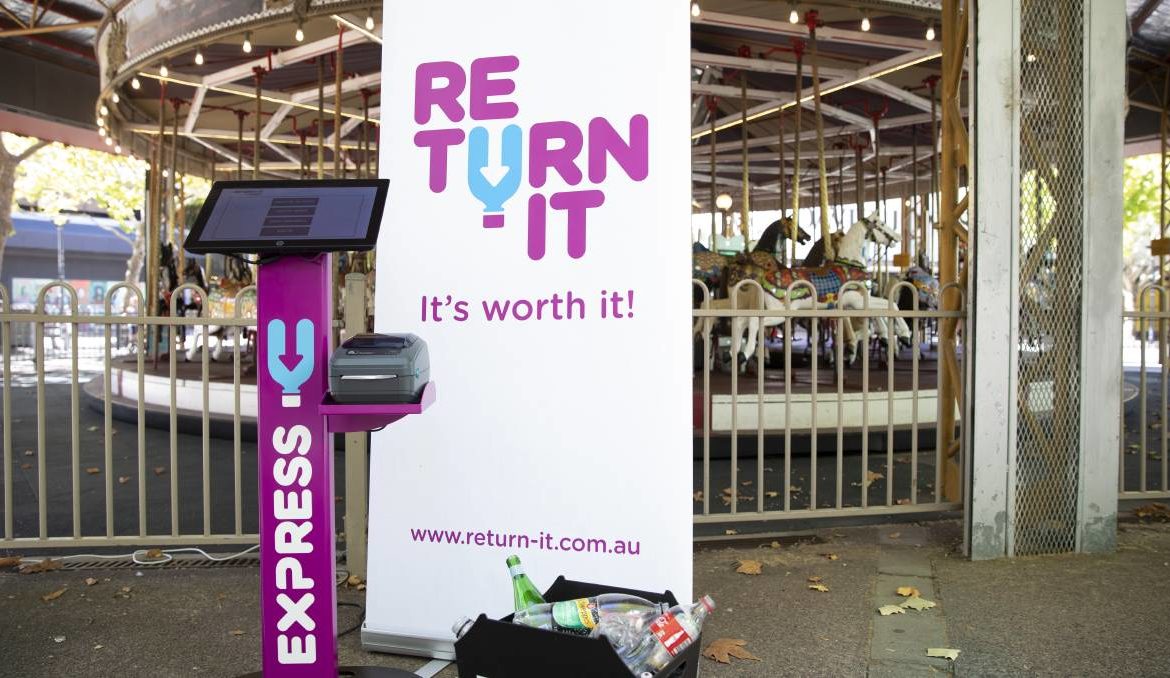news, latest-news, act container deposit scheme
The ACT’s container deposit scheme, which offers a 10 cent refund on returned bottles and cans, will leave the territory $40 million better off over the next two decades despite lower than forecast levels of use, an independent analysis has found. The analysis, written by Dr Sarah Yu from the University of Canberra’s faculty of business, government and law, found the scheme lessened the cost to the environment by $71 million over 20 years. But ACT consumers will bear a $49 million cost over the same period, which included both taxation and participation costs. The costs to the beverage industry were estimated to be $0. The benefits of the scheme included reduced landfill costs, avoided street sweeping costs and avoided waste collection, processing and transport costs. The largest cost of the scheme is the container redemption infrastructure and operating costs, valued at $40.7 million. The analysis found there would be a net benefit of $3.2 million for the ACT government. The analysis estimated the cost to Canberra households would be $2 million and the cost to businesses would be $3 million for participating in the scheme over a 20-year period. “These [household] costs include vehicle operating costs, travel time and container deposit redemption time … At the same time, businesses who are involved in the [container deposit scheme] will incur costs to take beverage containers to temporary storage sites, cleaners and other personnel involved in the larger storage infrastructure,” the analysis said. The report noted take-up of the scheme had been lower than forecast, but over the first 20 months of the scheme the difference between the number of containers forecast and returned has decreased. The difference would have little effect on the overall economic benefit. “The results of this analysis reveal that the scheme is highly beneficial to the ACT community, with total benefits exceeding total costs by nearly $40 million. One reason for this significant result lies in the estimate of the community’s willingness to pay for litter reduction,” Dr Yu wrote in the paper, which was published in Economic Papers in November. Not all benefits could be easily quantified and some were omitted from the analysis, including community recycling behavioural change, avoided resource depletion and a reduction in waterway litter. “Fortunately, these unqualified factors would improve the [cost benefit analysis] outcome even if they could be included,” Dr Yu wrote. Last year, City Services Minister Chris Steel flagged the government could increase the refund on each beverage container from 10 cents to 15 cents. Mr Steel said only 50 per cent of available containers were being redeemed or recycled, with the rest ending up in landfill.
/images/transform/v1/crop/frm/fdcx/doc6zmtfws0hk4c0fnt6wh.jpg/r0_272_5338_3288_w1200_h678_fmax.jpg
The ACT’s container deposit scheme, which offers a 10 cent refund on returned bottles and cans, will leave the territory $40 million better off over the next two decades despite lower than forecast levels of use, an independent analysis has found.
The analysis, written by Dr Sarah Yu from the University of Canberra’s faculty of business, government and law, found the scheme lessened the cost to the environment by $71 million over 20 years.
But ACT consumers will bear a $49 million cost over the same period, which included both taxation and participation costs. The costs to the beverage industry were estimated to be $0.
The benefits of the scheme included reduced landfill costs, avoided street sweeping costs and avoided waste collection, processing and transport costs.
The largest cost of the scheme is the container redemption infrastructure and operating costs, valued at $40.7 million. The analysis found there would be a net benefit of $3.2 million for the ACT government.
The analysis estimated the cost to Canberra households would be $2 million and the cost to businesses would be $3 million for participating in the scheme over a 20-year period.
“These [household] costs include vehicle operating costs, travel time and container deposit redemption time … At the same time, businesses who are involved in the [container deposit scheme] will incur costs to take beverage containers to temporary storage sites, cleaners and other personnel involved in the larger storage infrastructure,” the analysis said.
The report noted take-up of the scheme had been lower than forecast, but over the first 20 months of the scheme the difference between the number of containers forecast and returned has decreased. The difference would have little effect on the overall economic benefit.
“The results of this analysis reveal that the scheme is highly beneficial to the ACT community, with total benefits exceeding total costs by nearly $40 million. One reason for this significant result lies in the estimate of the community’s willingness to pay for litter reduction,” Dr Yu wrote in the paper, which was published in Economic Papers in November.
Not all benefits could be easily quantified and some were omitted from the analysis, including community recycling behavioural change, avoided resource depletion and a reduction in waterway litter.
“Fortunately, these unqualified factors would improve the [cost benefit analysis] outcome even if they could be included,” Dr Yu wrote.
Mr Steel said only 50 per cent of available containers were being redeemed or recycled, with the rest ending up in landfill.







